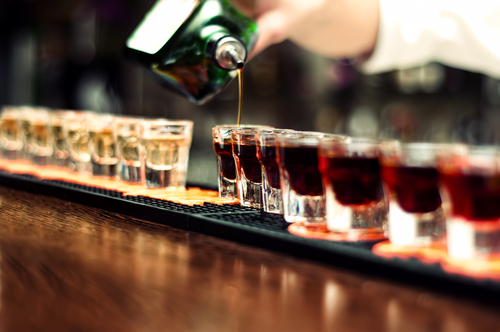A recent study found that a majority of Americans drink up to 4 alcoholic drinks a week. While drinking alcohol is not inherently wrong, it is often what happens after alcohol consumption that causes trouble–drunk driving, irresponsible actions, or even the development of certain health conditions. Drinking alcohol without limits can bring you a host of physical and mental problems.
In addition, heavy consumption of alcohol can negatively impact your dental health. Far too many people do not realize that many adult beverages are just as acidic and sugary (if not more) as the more common culprits of tooth decay, such as soda and juice. Always drink in moderation, and this means to always be concerned with how your drinking will affect your teeth. Here are a few things to keep in mind when you enjoy your next adult beverage:
Alcohol ingredients can boost bacteria growth
Some adult beverages, such as gin, rum, whiskey, and vodka, do not contain any added sugar. That said, other drinks come packed to the brim with sugar: according to SFGate, a pina colada can contain over 28 grams of sugar per serving. While this is slightly lower than the typical 40 grams of sugar found in a can of soda, many people do not stop at one serving of alcohol. 28 grams of sugar per serving can quickly add up throughout the night.
While the sugar itself doesn’t cause tooth decay, it assists the process of the condition. Consuming vasts amounts of sugar is known to boost bacteria growth inside your mouth, as the bacteria feast on the carbohydrates (sugar). :
Alcohol weakens tooth enamel
The bacteria in your mouth secrete an acid that weakens your tooth’s enamel. By providing the bacteria plenty of sugar through heavy alcohol consumption, you are speeding this process along. Built up over time, the bacteria’s acid will eventually break through your teeth’s protective outer layer and invade the vulnerable interior. Left untreated, the infection of bacteria inside your tooth will develop into a full-fledged cavity, at which point you will need to see a dentist.
What should you do?
Don’t fret! We are not suggesting to stop drinking altogether, or to be afraid of alcohol’s effects on your teeth. Rather, we recommend to handle alcohol as you would any other food or beverage harmful to your teeth: consume it in moderate amounts. More importantly, remember to brush your teeth after a night of drinking! A proper brushing will ensure that all the bacteria-boosting sugars are cleansed from your mouth.
Want to know more about protecting your teeth? Do you believe alcohol might be the reason for your cavity? Your friends at Greenspoint Dental are here to help. For more information or to schedule an appointment, contact an experienced dentist in Houston, Texas today.

